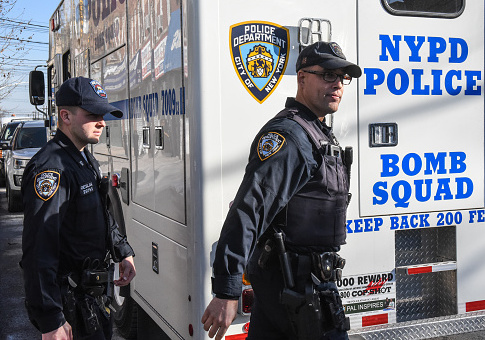A week after authorities arrested a would-be suicide bomber for detonating an explosive in a crowded New York City transit station, the New York Times ran a piece highlighting his charity work in Bangladesh.
In a Tuesday A1 story with a print headline of "Subway Bomb Suspect's Mysterious Act of Mercy," the Times reported that a few weeks before the attack, Akayed Ullah participated in charity work in his native country to help Rohingya refugees who fled neighboring Myanmar.
"After visiting relatives here in the capital city, Dhaka, he traveled across the country, slept in a mosque and under a tree, and passed out a few hundred dollars of medicine in the crowded refugee camps," reported the Times' Jeffrey Gettleman.
Despite pondering the "mystery" of his actions, the Times noted the charity work was well in line with the commands of other radical Islamic terrorists.
"Was Mr. Ullah following Al Qaeda, who had just urged Muslims to deliver medicine — and weapons — to the Rohingya, a Muslim ethnic group whose members have been raped, brutalized and massacred in neighboring Myanmar?" Gettleman asked.
"Or was he following his own heart, reflecting some sort of inner struggle as he headed toward his first known act of violence and self-destruction?" he continued.
Investigators say Ullah was radicalized after he arrived in New York in 2011, and Mohammed Abdur Rashid, a retired Bangladesh army general who now runs a research institute on conflict in Dhaka, said those in the West are "naïve" for allowing it.
Bangladeshis are deeply worried about this phenomenon — young members of the diaspora becoming radicalized overseas. Mr. Ullah is hardly the first. The mastermind of one of the worst terrorism attacks Bangladesh has ever suffered — the slaughter of more than a dozen foreigners at a bakery last year — grew up and went to college in Canada. Analysts say it is much easier for young Bangladeshis to be buffeted by jihadist propaganda once they are in the West.
"You guys in the West are naïve," Mr. Abdur Rashid said. "You give more space for the preachers, the hate speech. We don’t tolerate it."
"It is not clear" whether Ullah's alleged actions were in response to Al Qaeda's call to action, the Times argues, despite the fact that "investigators in Bangladesh said he was closely following several jihadist websites."
The Times also interviewed Ullah's relatives and friends who depicted him as "loving and giving" and a man "outraged by injustices inflicted on Muslims."
"He didn’t smoke, he didn’t misbehave, he was always cordial, he was the type of guy who couldn’t commit any crime," said one friend.
